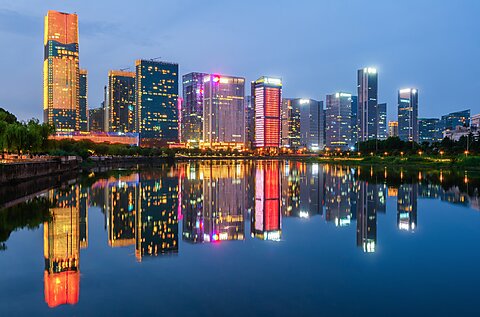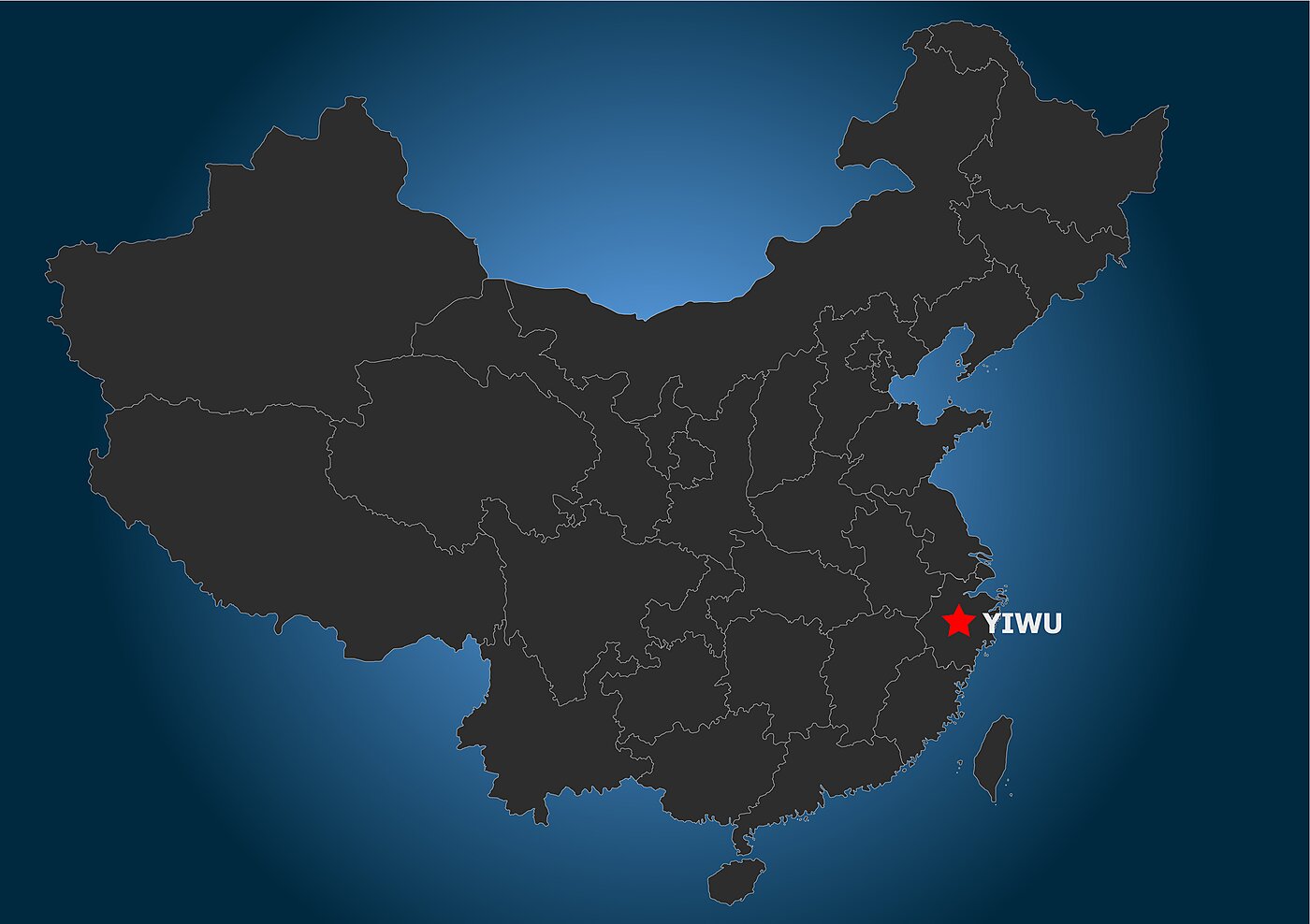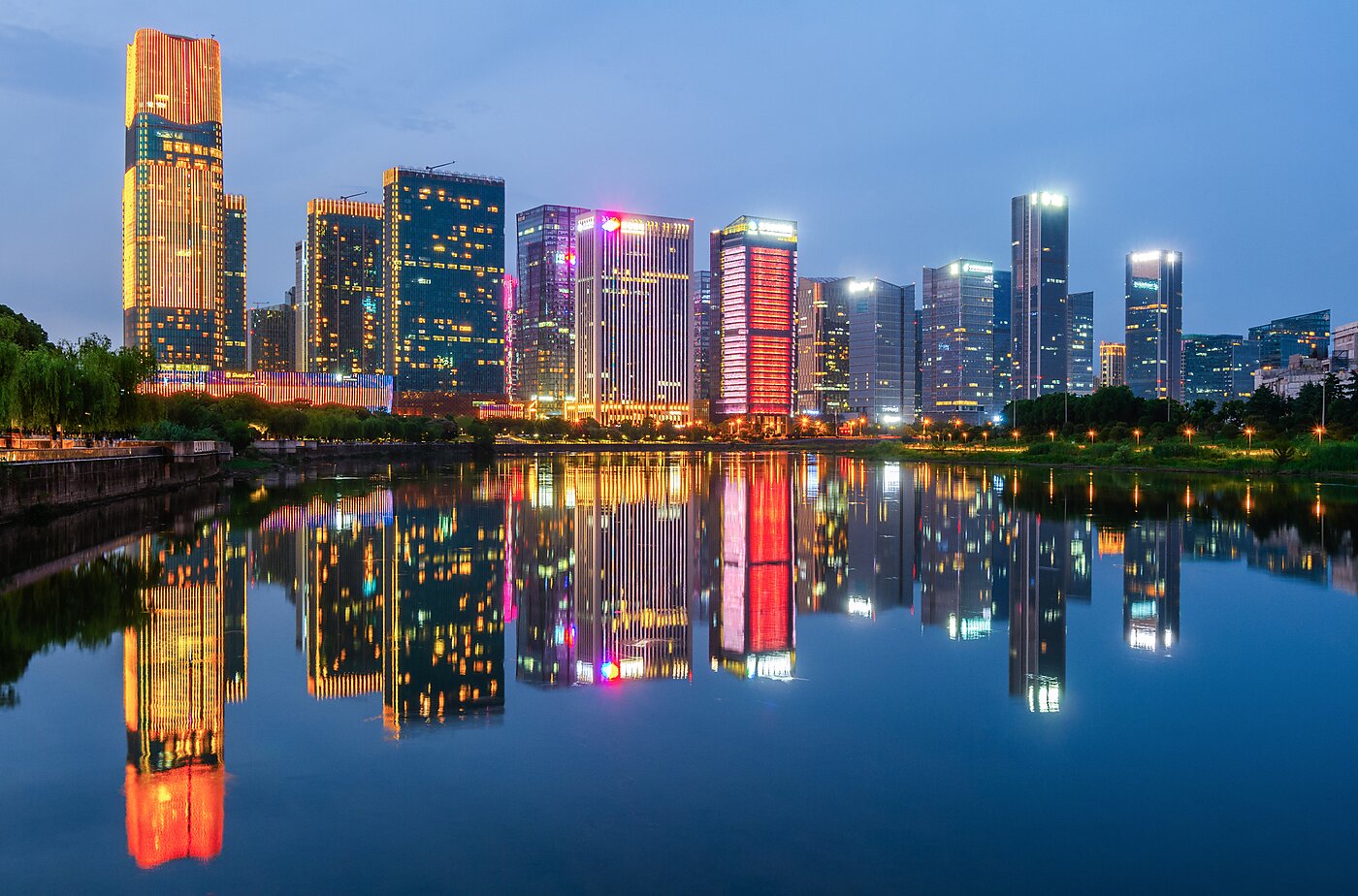James A. Dorn
Few Americans have ever heard of Yiwu, a hilly, noncoastal city in Zhejiang Province, which is now the world’s largest small commodities trading market. It is a massive marketplace occupying five districts and housing more than 75,000 individual booths, trading over 400,000 products (Luminous Team 2024). The market evolved spontaneously as itinerant peddlers sought to improve their standard of living, and local officials allowed shadow markets to develop because private trading was prohibited by the Chinese Communist Party (CCP) under Chairman Mao Zedong (Rui 2018: S16).
With the economic reforms initiated by Deng Xiaoping in late 1978, more opportunities for trade appeared, and in 1982, the first private, wholesale small commodities market was established in Yiwu (Li et al. 2016: 12). As the market grew from servicing domestic buyers to global buyers, more industries clustered around Yiwu, and its population and living standard increased dramatically. Per capita GDP in Yiwu went from 235 yuan in 1978 to 68,508 in 2008 and reached 88,823 in 2016—compared to the national average of 53,817 yuan (Rui, S14).
Yiwu is a prime example of the role of small traders in the process of economic development—a feature that Peter Bauer observed in his study of how countries move from subsistence to exchange. In his 1954 book, West African Trade, he examined how small traders succeeded by acting as “trader-entrepreneurs.” They were willing to work hard, be resourceful, and take risks to open the range of choices available to people. In doing so, they increased the efficiency of markets and promoted economic growth (chap. 2). Small traders were instrumental in developing internal markets and known for what Bauer called their “spontaneous organizing ability” (chap. 27).
Bauer was critical of mainstream development economists for ignoring the role of internal trading activities in less developed countries. He recognized the dynamic gains from trade (both internal and external), arguing, “Contacts through traders and trade are prime agents in the spread of new ideas, modes of behavior, and methods of production. External commercial contacts often first suggest the very possibility of change, including economic improvement” (Bauer 2000: chap. 1).
This article traces the development of Yiwu’s marketization, the actions of local officials in permitting the activities of private traders before being approved by higher-level officials in the CCP, and the lessons learned from the success of Yiwu’s small commodity market.
The Emergence of Yiwu as China’s Free-Market City
The distinguishing characteristic of Yiwu is the courage and pioneering spirit of its poor farmers who took the risk of becoming small commodity traders and entrepreneurs. As noted in Xinhua Politics, “The Yiwu Marketplace Is the People’s Creation” (December 20, 2018; see Osborne 2024: 275). In seeking to help their families survive and improve their living conditions, farmers used locally grown sugarcane to produce candy, which they exchanged for feathers that could be used as fertilizer and dusters. The so-called feather-candy men date back to the 17th century (Yiwu Market Guide).
Although small wholesale markets existed in the 1700s, the birth of the People’s Republic of China in 1949 put a halt to the emergent marketization process. As the Yiwu Market Guide notes, “no free trade was allowed.” Private traders were regarded as capitalists and were repressed by the authorities. Under the “Three No Rule,” farmers were not allowed to engage in business; industrial goods were not allowed to be sold in private, free markets; and self-employed people were not allowed to engage in wholesale trade (Rui, S16). Nevertheless, during the period of central planning (1950s–1970s), “walking traders” (xing shang) continued to operate illegally, and a “spontaneous trading market laid the foundation for the future Yiwu market” (ibid.).
The Role of Local Government Officials
Things began to change when Deng Xiaoping launched his economic reforms in December 1978. Yiwu traders took the opportunity to set up informal markets by placing their baskets on roadsides. In April 1981, the Yiwu County Industry and Commerce Bureau issued 200 temporary trading permits, and the “spontaneous market” was moved to Bei Men Street.” This was risky “because no clear permission was given by the central government” (Rui, S17).
A key turning point in the development of the Yiwu market occurred a year later, in April 1982, when the CCP appointed Xie Gaohua general secretary of Yiwu. He was sympathetic to the emergence of a free market, as he saw the success of Yiwu’s small traders. However, trade restrictions were still tight, and the tax authorities discriminated against private traders. One trader, Feng Aiqian, confronted Xie, telling him that she depended on small commodity trading to help her family and that she was not harming anyone by her actions, which were deemed socially destructive by the CCP. Xie listened carefully and then visited local farmers “to investigate the truth.” Seeing widespread poverty, he “realized that trading was indeed a major income supplement to farmers.” As a result, he “promoted the idea that ‘small commodity trading is Yiwu’s major advantage’ and supported market development.” Other members of the municipal government joined his effort to form a free market in Yiwu (Rui, S18).
In August 1982, officials in Chou Cheng Town issued “Strengthening the Management of [the] Small Commodity Market,” which led to the opening of the Hu Qing Men market on September 5, 1982. The so-called No. 1 document required Yiwu traders to register and obtain a permit/certificate to enter the small commodity market. On November 26, Xie Gaohua announced the “Four Allows”—namely, “Allow farmers to trade, allow long-distance trafficking, allow urban and rural markets’ operation, and allow multi-channel competition.” The Yiwu county government formalized those rules on December 4, 1982, even though the central government lagged behind. Finally, on October 5, 1984, Xie proclaimed Yiwu’s strategy of “Promoting commerce to develop the country” (ibid.).
The support of government officials in Yiwu for marketization should dispel the idea that all members of the CCP were anti-free market. As Evan Osborn writes in Markets with Chinese Characteristics, “Lest readers think that government officials can only damage the spontaneous order of economic liberalization, the years of early Chinese economic reform had their share of bold and ultimately admirable politicians” (Osborn 2024: 211–12).
Lessons Learned
The main lesson learned from the emergence of the Yiwu small commodities wholesale market is the instrumental role of farmers—with little formal education but a spirit of enterprise—who spontaneously cooperated to form trading hubs to improve their living conditions, even in the face of punishment for being seen as “capitalist roaders.” As Rui (2018, S21) emphasizes, “The Yiwu trading system was established in a bottom-up, spontaneous manner.”
This narrative applied elsewhere in China, as Kate Xiao Zhou so brilliantly elaborated in her 1996 book, How the Farmers Changed China: Power of the People. According to Zhou (p. 101), “It was primarily the farmers who founded markets and sparked China’s market-oriented renaissance.” After 1978, when opportunities for marketization increased, trader-entrepreneurs expanded their operations with the help of local officials who saw the benefits of free, private markets compared to state monopolies. The farmers’ markets (jishi), which Zhou calls “spontaneous markets,” developed “so fast that some of them [e.g., in Yiwu] developed into wholesale or specialty markets.… By 1990, there were … 239 small commodity markets, all developed on a nonplanned basis” (Zhou, p. 92).
Nonstate enterprises became dominant in Zhejiang Province as China opened to the outside world. Yiwu benefited as those firms participated in the supply chain to the small commodities market, which now serves both domestic and international buyers. The lesson here is that free markets are not static. Trader-entrepreneurs are constantly searching for new markets to increase their profits and survive. Moreover, the case of Yiwu shows that “such commodity markets provided for the setting up of manufacturing enterprises to make products sold in these markets” (Li et al., p. 10).
Yiwu’s emergence from a poverty-ridden outback to the world’s largest wholesale trading market for small commodities is a strong reminder of the power of people to transform their lives through free markets, provided the state reduces its control over economic life.
James A. Dorn is Senior Fellow Emeritus at the Cato Institute.




